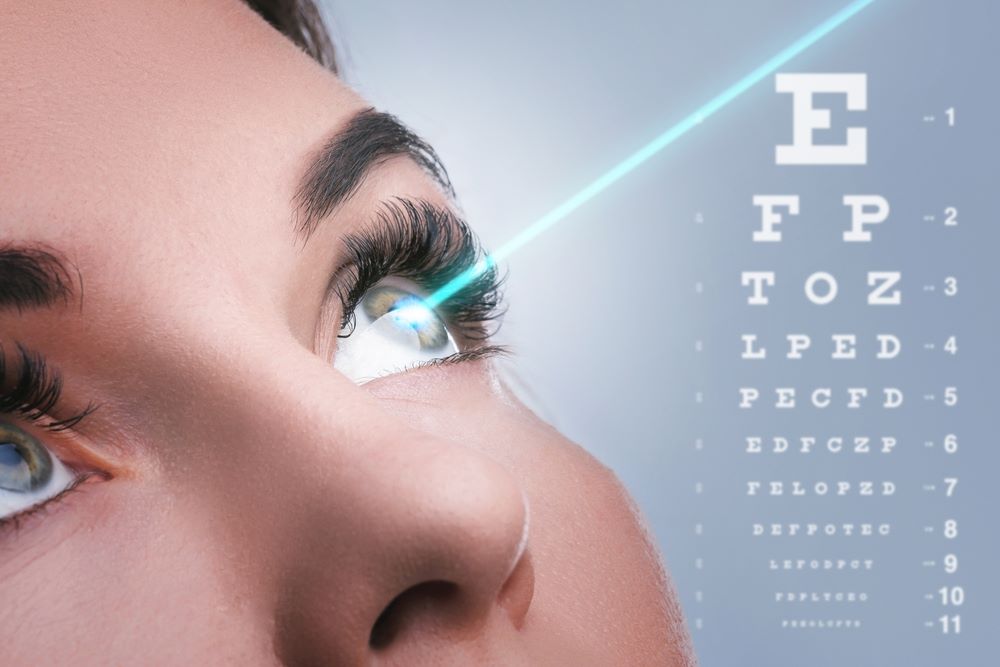Lasik
LASIK, short for Laser-Assisted in Situ Keratomileusis, is a popular surgical procedure aimed at correcting vision problems such as nearsightedness, farsightedness, and astigmatism. It is a form of refractive surgery that utilizes a laser to reshape the cornea, the transparent front part of the eye, to improve the way light rays are focused onto the retina. By altering the shape of the cornea, LASIK aims to reduce or eliminate the need for glasses or contact lenses, providing patients with clearer vision and greater visual freedom.

Symptoms :
The decision to undergo LASIK surgery is often prompted by the presence of vision problems that can significantly impact daily life. Common symptoms that may lead individuals to consider LASIK include:
- Blurred vision: Difficulty in seeing objects clearly at a distance or up close.
- Nearsightedness (myopia): Difficulty seeing distant objects clearly.
- Nearsightedness (myopia): Difficulty focusing on nearby objects.
- Astigmatism : Distorted or blurred vision due to irregular curvature of the cornea.
These symptoms can vary in severity and may worsen over time, leading many individuals to seek a long-term solution for their vision correction needs.
Causes
Several factors can contribute to the development of vision problems that LASIK aims to address. Some common causes include:
- Genetics : Vision problems such as nearsightedness, farsightedness, and astigmatism can have a genetic component, meaning they may run in families.
- Age : The shape and flexibility of the eye's lens change with age, leading to conditions like presbyopia (difficulty focusing on close objects) in middle to older age.
- Smoking : Tobacco smoke contains toxins that can accelerate Lasik formation.
- Environmental Factors : Prolonged exposure to digital screens, inadequate lighting conditions, and excessive strain on the eyes can contribute to vision problems.
- Medical Conditions : Certain medical conditions such as diabetes or eye diseases like glaucoma can affect vision and increase the likelihood of needing corrective measures like LASIK.
Addressing these underlying causes through LASIK surgery can provide patients with lasting improvements in their vision and quality of life.
LASIK is considered a safe and effective procedure when performed by a qualified and experienced ophthalmologist. Like any surgical procedure, there are potential risks and complications, but they are relatively rare.
Not everyone is a suitable candidate for LASIK. Factors such as age, overall eye health, and the stability of your vision prescription will determine your eligibility. A comprehensive eye examination and consultation with an eye care professional are necessary to determine candidacy.
Most patients experience improved vision immediately after LASIK, with minimal discomfort. The full recovery typically takes a few days to weeks, during which time you may experience some dryness or mild irritation in the eyes. Your doctor will provide detailed post-operative instructions to aid in the healing process.
LASIK provides long-lasting vision correction for the majority of patients. However, it's essential to understand that while LASIK can correct existing vision problems, it does not prevent age-related changes or the development of new eye conditions in the future.